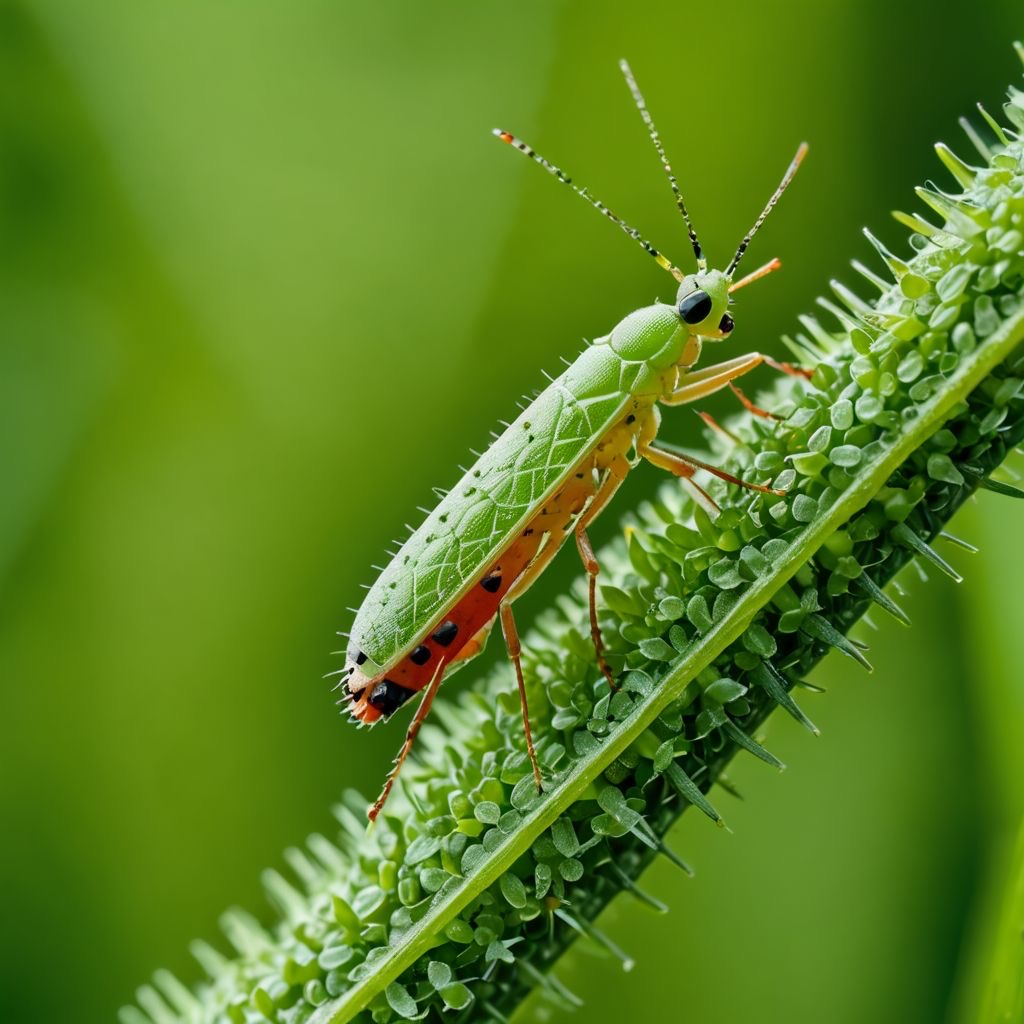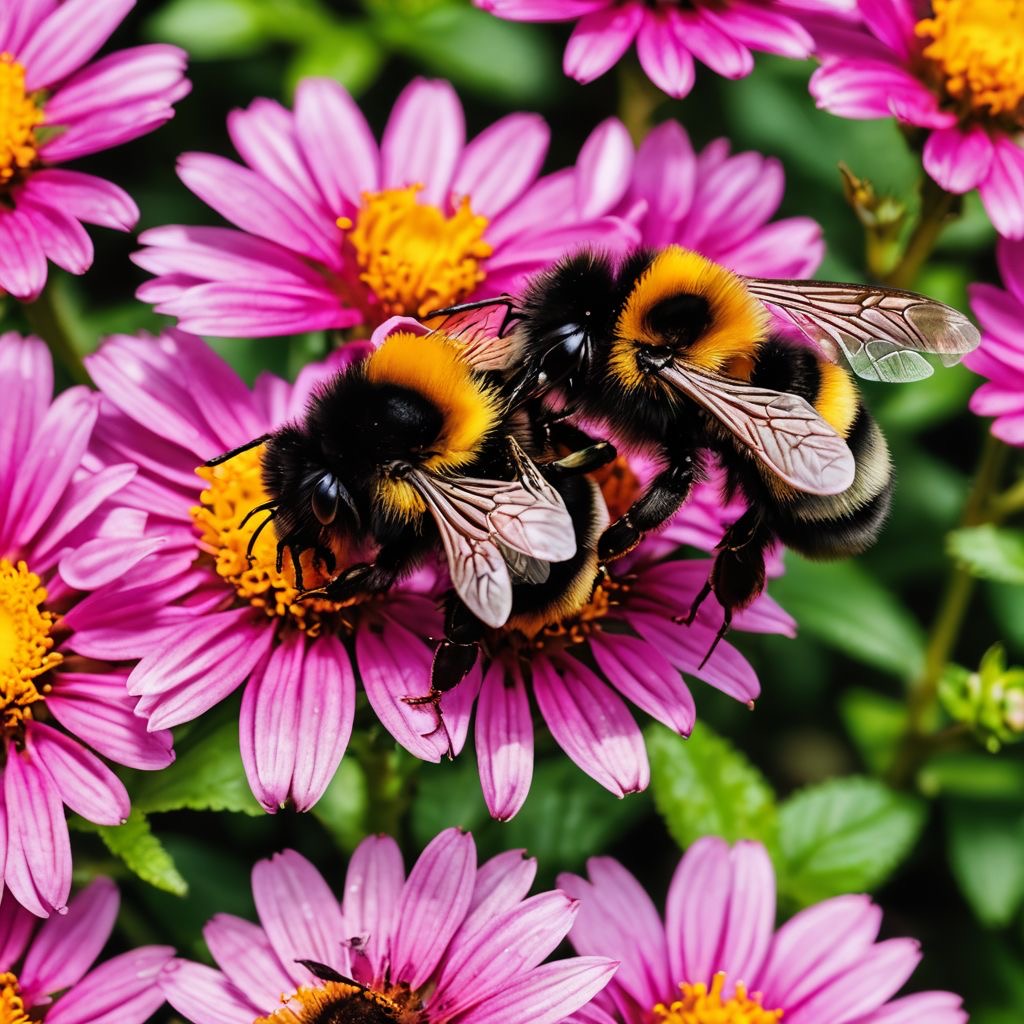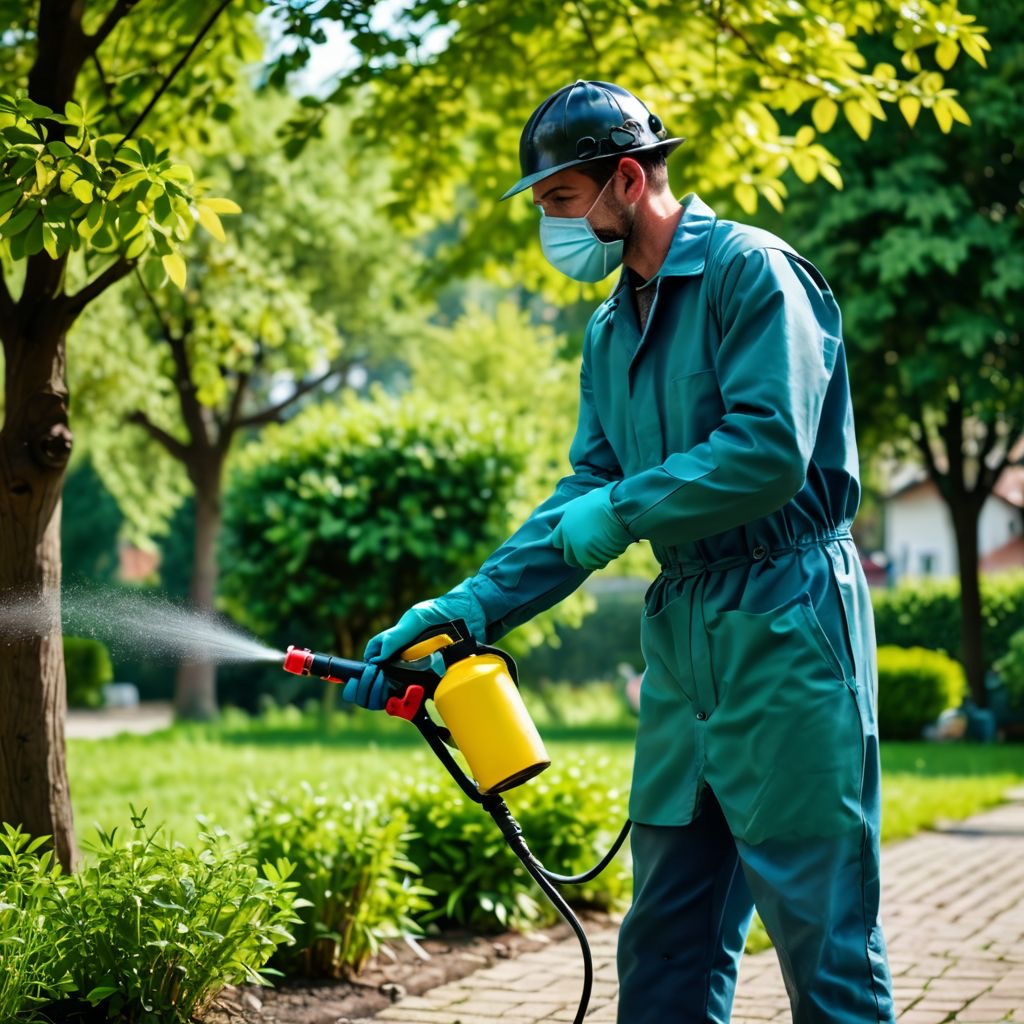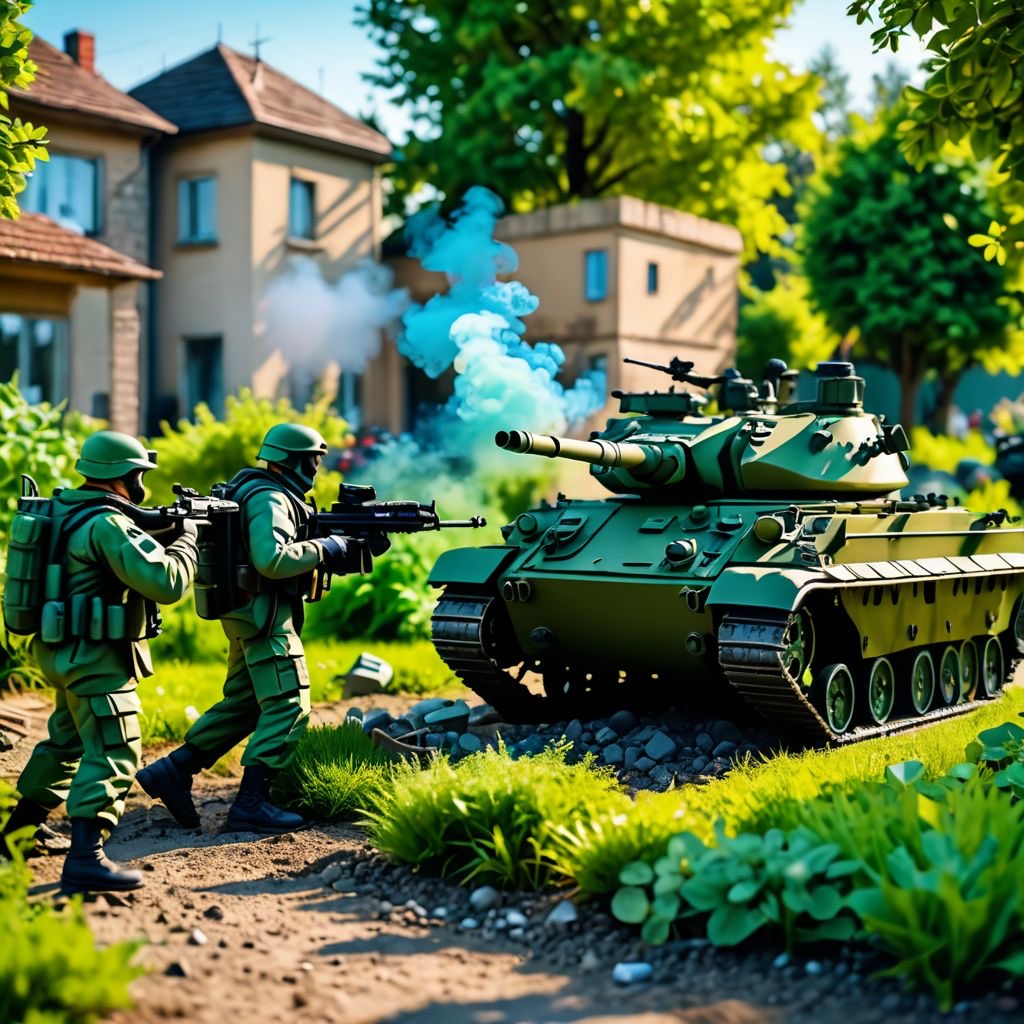
Table of Contents:
1. Introduction
2. Insecticides: The Pest Police of Your Winnipeg Garden
- 2.1 What are Insecticides and their use in yard care?
- 2.2 Active Ingredients in Insecticides
- 2.3 Uses of Insecticides
- 2.4 Risks Associated with Insecticides
- 2.5 Organic Alternatives to Insecticides
3. Herbicides: The Green Thumbs' Sorry Enemy
- 3.1 What Are Herbicides?
- 3.2 Active Ingredients in Herbicides
- 3.3 Uses of Herbicides
- 3.4 Risks Associated with Herbicides
- 3.5 Organic Alternatives to Herbicides
4. Final Thoughts: Balancing Yard Aesthetics with Safety
5. Conclusion
Introduction
Ah, yard maintenance, one of Winnipeg homeowner’s favourite summer endeavours! Isn’t it delightful to step into your backyard sanctuary and see your greenery thriving? But wait, what's that? Is that a swarm of aphids?

Or perhaps a patch of dandelions trying to sabotage your grass? If you've ever found yourself in a garden showdown with pests and weeds, then you're in the right place! Today, we're diving headfirst into the world of insecticides and herbicides—chemicals that can either be our best friends or our worst enemies.

For those of us in the Winnipeg area, navigating through our options for lawn maintenance near me can sometimes feel like wandering through a maze of confusing terms and choices. Fear not! By the end of this blog, you’ll be well-equipped with all the knowledge you need to make informed decisions about the products you use on your property. We’ll talk about what these chemicals are, their active ingredients, how they work, potential risks, and even some organic alternatives that could save your garden and the environment at the same time.
With an engaging blend of humor and relatable examples, we’ll unravel the mysteries of these chemicals, so you can feel confident and competent in your yard services choices. Plus, you just might become a sought-after gardening guru among your friends! Let’s jump in and talk about making sure your back yard maintenance is not only effective but also safe for your family, pets, and our local flora and fauna!

2. Insecticides: The Pest Police of Your Garden:

2.1 What Are Insecticides?
Let’s kick things off by getting a little clear on what insecticides actually are. These are chemical substances designed to control or kill insects that might be snacking joyfully on your beloved plants. Hailing from the Latin word "insectum," meaning to cut into, insecticides work specifically to eliminate pesky little critters that can wreak havoc in your green paradise. They can be found in a variety of forms: sprays, granules, and even baits, making them versatile tools in the gardening arsenal.
Insecticides serve a dual purpose; beyond immediate pest control, they are also instrumental in maintaining the health of our gardens and supporting overall plant vitality. An effective application can help strengthen plant defenses against not only insects but also diseases that may be more prevalent due to pest infestations. The balance of using these chemicals properly—without over-reliance or misuse—can lead to a healthy and sustainable garden ecosystem.

2.2 Active Ingredients in Insecticides
Many Winnipeg lawn care companies carry products with active ingredients like pyrethroids, neonicotinoids, and organophosphates. Now, I know, these names might sound like they're straight out of a spell book, but let's break them down a bit more comprehensively:
- Pyrethroids: Derived from chrysanthemum flowers, these are a popular choice among homeowners. They work on the nervous system of the insect and have the bonus of being biodegradable. While effective, it’s essential to follow application guidelines to ensure minimal environmental impact during use.
- Neonicotinoids: These chemicals mimic nicotine and are quite effective on pest populations. However, they have been implicated in declining bee populations, prompting considerable debate in both the gardening community and regulatory circles. It's crucial for gardeners to use them judiciously and consider their alternatives.

- Organophosphates: These are synthetic chemicals that disrupt an insect’s nervous system but can be hazardous to beneficial insects, pets, and humans if misused. Awareness of these risks prompts many to seek less harmful forms of pest control, as their long-term environmental impacts unfold.
Knowing which active ingredients to look for is essential when sourcing your pest control solutions. It's also advisable to read the product labels carefully to ensure safe and environmentally responsible use.
2.3 Uses of Insecticides

So, when should you pull out the big guns and say, "Welcome to the insect blitz"? Insecticides are commonly utilized for a variety of purposes in the great outdoors, including:
- Protecting vegetable gardens from aphids, caterpillars, and other unwelcome herbivores. Using insecticides at the first sign of an infestation can often prevent more extensive damage.
- Spraying flowering plants to combat thrips or spider mites, both of which can quickly decimate blooms if left unchecked. The right approach will enhance the vitality of your garden's aesthetic allure.
- Managing larger infestations in shrubs and trees can deter long-term damage. If you notice signs of decline, prompt intervention using insecticides might be the best course of action.
In essence, if your yard is feeling like a bug buffet, a targeted approach with insecticides can save your plants before they become an insect’s next three-course meal. Employing them strategically means maximizing effectiveness without over-relying on potent chemicals, ensuring that you maintain both plant health and ecosystem balance.
2.4 Risks Associated with Insecticides
However, before you grab that can of bug spray, let’s chat about risks. First and foremost, the misuse of insecticides can lead to unintended consequences, including:
- Non-target impacts: Many insecticides don’t discriminate; while they may terminate pests, they can end up harming beneficial insects like bees and ladybugs. Beyond that, this mistake can inadvertently throw your garden's ecosystem out of balance, leading to new pest issues down the road.
- Soil health: Frequent use of insecticides can degrade soil health, which is vital for root growth, nutrient uptake, and the beneficial bacteria that promote healthy plants. Over time, this can lead to a dependency on chemical inputs, making it harder to maintain plant vitality naturally.
- Human and pet safety: Overexposure to these chemicals can pose health risks to your family and pets. Maintaining safety protocols around your application methods—like wearing gloves and not spraying on windy days—will protect your loved ones and keep your surroundings less toxic.

The key takeaway is that understanding these risks can lead to better decisions in managing garden pests: find methods that protect both your plants and the environment. There is no substitute for knowledge when it comes to maintaining a beautiful, healthy garden.
2.5 Organic Alternatives to Insecticides
Healthy & Eco-Friendly Winnipeg Garden Ideas
If you’re not feeling the love for chemical solutions, don’t worry—there's a healthy array of organic alternatives! These may include:
- Neem oil: A natural insect repellent that disrupts the life cycle of many pests. Using neem oil creates fewer side effects on non-target organisms and tends to be more eco-friendly.
- Diatomaceous earth: This powdery substance works like a charm against soft-bodied insects when sprinkled around plants. It's a safe option that targets pests without posing risks to your pets or plants.
- Companion planting: Introducing pest-repelling plants like marigolds can be a beautiful yet effective way of controlling unwanted visitors. Think of it as a natural, colorful line of defense—let your flora do some of the work for you!
With these strategies, your garden will be buzzing (the good kind) in no time! Making the switch to organic solutions not only embodies a responsible gardening ethos but can lead to healthier plants and soil, ultimately providing you with a thriving backyard.
Ready to chat about your landscaping goals?

Reach out by call or text to: 204-229-9789 or click here to submit your information today to arrange a “no obligation” introductory phone call. We look forward to helping you transform your yard.
Tips on how to prepare for a consultation meeting with a landscape contractor
3. Herbicides: The Green Thumbs' Sorry Enemy:
3.1 What Are Herbicides?

Now, if insecticides are the police of your garden, herbicides are more like the bouncers at a club—keeping those unwanted weeds at bay! These chemicals are specifically designed to kill or inhibit the growth of unwanted vegetation, making them essential in keeping your lawn pristine and green. Think of them as your lawn's personal security detail, stepping in when unruly guests try to crash the party.
Herbicides come in two main categories: pre-emergent and post-emergent. Pre-emergent herbicides work like a barrier, preventing weed seeds from germinating, while post-emergents tackle already established weeds. This two-pronged approach is critical for effective weed management throughout the year.
3.2 Active Ingredients in Herbicides

Let’s break down some of the active ingredients you might encounter when searching for your herbicide solution:
- Glyphosate: The most widely used herbicide globally, it works non-selectively to kill weeds by inhibiting a specific enzyme pathway. However, its effectiveness has led to concerns about potential health risks, with some studies suggesting links to cancer, which has fueled considerable debate within both agricultural and gardening communities.
- Atrazine: A common lawn care option, atrazine fights against broadleaf weeds and grass, but its reputation is tainted due to concerns about water contamination and potential human health effects. Understanding local regulations regarding usage can ensure responsible application.
- 2,4-D: A selective herbicide that specifically targets broadleaf weeds without harming your precious grasses. Commonly used in residential lawns, its safety profile is more favorable than others, but still requires cautious application to protect ornamental plants and nearby flower beds.
Finding the right product with the proper active ingredient is crucial for our ecological balance and your lawn’s health. Always take time to read labels and familiarize yourself with proper application techniques to ensure effectiveness while minimizing risks.
3.3 Uses of Herbicides
Herbicides are commonly applied for:
- Pre-emergent applications to prevent weed seeds from germinating. Think of it as setting the foundation for a weed-free lawn long before they have a chance to make an appearance.
- Post-emergent use to tackle existing weed populations. Catching them early, before they can seed and spread, is your best line of defense.

- Additionally, they can be used in flower beds or vegetable gardens, but careful application is essential to avoid damaging your prized plants. With the right herbicide, maintaining a clean, beautiful landscape becomes far less daunting.
Proper timing and weather conditions can maximize the effectiveness of these chemical warriors. Avoid applying before heavy rainstorms or drought conditions, as they can dilute or wash away your treatment.
3.4 Risks Associated with Herbicides
Just like their insect-killing counterparts, herbicides come with their own set of risks, including:
- Resistance development: Overuse can lead to weed populations that are resistant to certain herbicides, creating an endless cycle of problems. In some areas, “superweeds” have emerged from irresponsible use, necessitating stronger chemicals with potentially higher health risks.
- Environmental hazards: Runoff from using herbicides can negatively impact nearby water bodies, harming aquatic ecosystems. This has raised concerns among environmental activists and local regulatory bodies, leading to a push for sustainable alternatives.
- Human health risks: Just like insecticides, exposure to certain herbicides has been linked to health concerns for humans and animals. Understanding how to handle and apply these chemicals safely means protecting not only yourself but also your pets, children, and the wildlife in your area.
3.5 Organic Alternatives to Herbicides
Transform your Winnipeg yard with Sunshine Maintenance & Landscaping
Feeling overwhelmed yet? Don’t fret; just like with insecticides, there are eco-friendly methods to manage weeds:
- Mulching: Covering your soil can smother weeds while improving soil health. Utilizing organic mulches also adds nutrients back into the soil as they decompose, promoting a vibrant growing environment.
- Boiling water: A simple and effective solution for killing weeds quickly without chemicals! This approach works particularly well in driveways or cracks in pavements where weeds may take root.
- Vinegar: A high acetic acid content in vinegar makes it a formidable weed killer. It can work well in a variety of settings—simply spray it directly onto the unwanted weeds.
By going organic, you’re not just maintaining a healthy space for your yard but also investing in the overall health of the environment. With respect to maintaining biodiversity and ensuring a safer future, organic methods represent a responsible choice that supports community health.
4. Final Thoughts: Balancing Yard Aesthetics with Safety:
Navigating the world of insecticides, herbicides, and molluscicides can feel overwhelming, especially when you want to maintain a beautiful and healthy lawn. However, by understanding the active ingredients, uses, and risks associated with these products, you are positioning yourself firmly in the role of an informed homeowner.
While the convenience of chemical agents is tempting, the growing trend toward organic alternatives for yard maintenance in Winnipeg demonstrates a collective shift towards sustainability. Increasingly, homeowners are recognizing that there are safer, eco-friendlier methods available that can achieve the same results without compromising the health of our gardens, our families, and the populations of beneficial insects and wildlife that share our outdoor spaces.
From enriching your soil health with organic lawn fertilizer to employing strategies like mulching and companion planting, the beauty of your lawn can happily coexist with nature. So, the next time you find yourself amongst wiggle-worms and pesky weeds, you'll be well-prepared to tackle a comprehensive, safe, and sustainable approach. And hey, who doesn’t enjoy a lush, vibrant lawn that's not only visually appealing but also eco-conscious?
5. Conclusion:

In conclusion, understanding insecticides and herbicides isn't just about chemical warfare in the garden; it’s about making informed decisions that can be safe for both your home and the environment. With a wealth of alternatives now available, from organic solutions to practical, kid-friendly DIY methods, every Winnipeg homeowner can take on effective yard services while maintaining a commitment to sustainability.
As you strategize your Winnipeg yard maintenance plans, remember to weigh the benefits against the risks of using chemicals. Whether you're enlisting help from Winnipeg lawn care companies or deciding to go solo with your gardening, informed choices will lead to healthier plants, safer spaces, and a thriving ecosystem around you.


